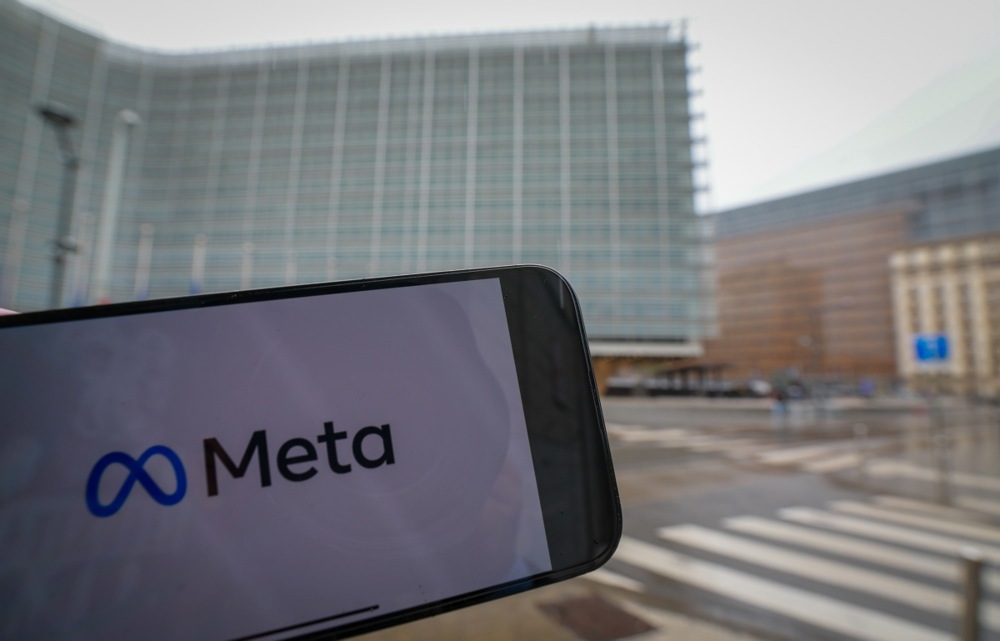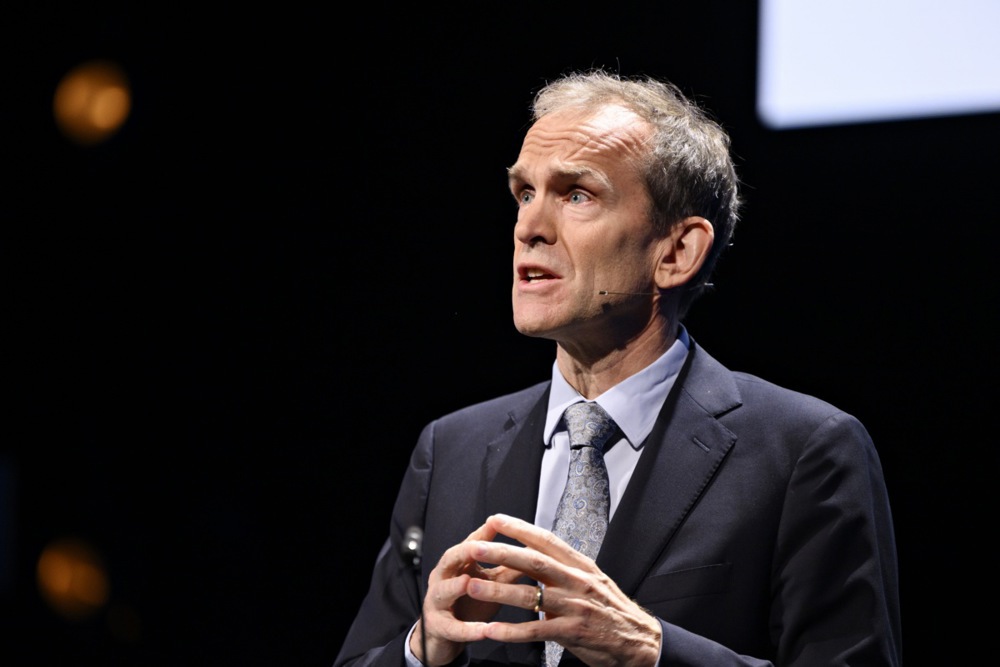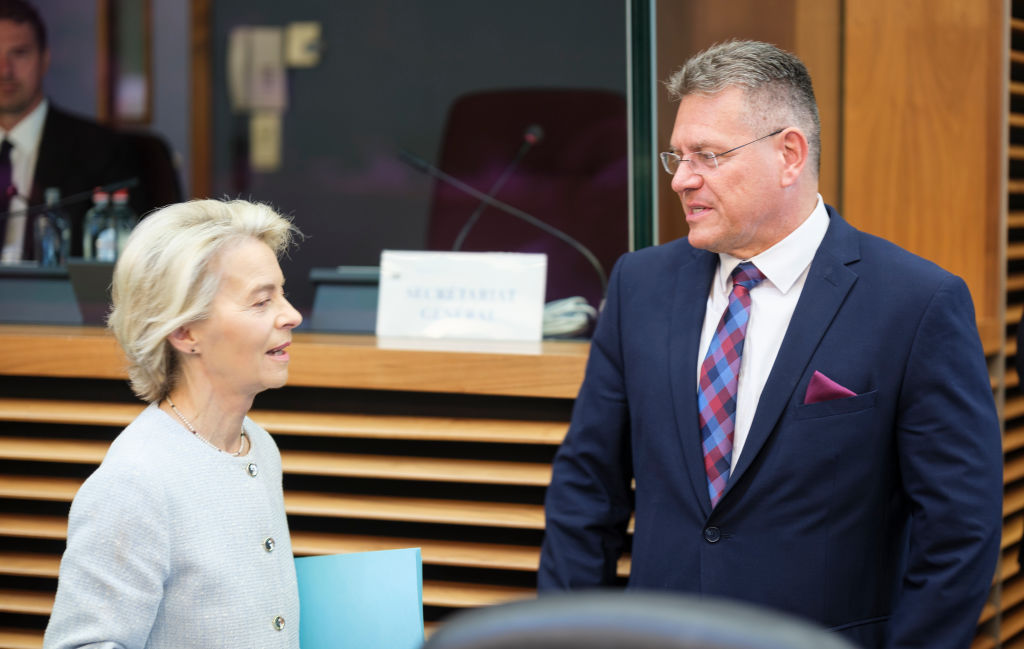Washington has imposed a 50 per cent tariff on more than half of Brazilian exports.
It also sanctioned a Brazilian Supreme Court judge as political retaliation against the deterioration of human rights in the Socialist-led country.
Main issues cited were the prosecution of opposition members and the limitation of free speech in Brazil.
Similar accusations have sometimes been levelled at the European Union and the US administration’s actions could serve as a warning to Brussels. In its view, the EU has been increasingly hostile to certain right-wing opposition parties and was advancing censorship through the bloc’s Digital Services Act.
On July 30, the White House issued a press statement by US President Donald Trump stating: “Recent policies, practices, and actions of the Government of Brazil threaten the national security, foreign policy, and economy of the United States.”
Trump accused Brazilian officials of having interfered with the US economy, violated free expression and human rights and politically persecution of a former president alongside undermining the rule of law and contributing to intimidation and abuse.
“Recently, members of the government of Brazil have taken unprecedented actions that harm and are a threat to the economy of the United States, conflict with and threaten the policy of the United States to promote free speech and free and fair elections at home and abroad, and violate fundamental human rights,” Trump said.
He added that Brazilian officials ordered US platforms to censor US citizens, block their fundraising, alter moderation policies and hand over user data, potentially targeting political critics and violating First Amendment protections.
Brazilian Supreme Court Justice Alexandre de Moraes has allegedly abused his power to silence political opponents, ordering raids, arrests, and censorship, including targeting US citizens for protected speech, according to Washington.
He has also fined and threatened US tech companies that refused to comply with secret censorship orders, and is currently prosecuting a US resident for speech made on US soil, it said.
Brazilian judges used concepts such as “disinformation,” “fake news” or “anti-democratic” or “hateful” content to go after its opposition and also hurt the US, it was alleged.
They “endanger the economy of the US by tyrannically and arbitrarily coercing United States companies to censor political speech, turn over sensitive US user data, or change their content moderation policies on pain of extraordinary fines, criminal prosecution, asset freezes, or complete exclusion from the Brazilian market”, Trump said.
“These actions also chill and limit expression in the United States, violate human rights, and undermine the interest that the United States has in protecting its citizens and companies at home and abroad.”
President Trump signed an Executive Order addressing threats by the Government of Brazil & safeguarding U.S. interests, which:
➡️ Imposes an additional 40% tariff on Brazilian imports.
➡️ Declares a national emergency to address Brazil’s policies that violate human rights. pic.twitter.com/A1K2RmdCX4— The White House (@WhiteHouse) July 30, 2025
Trump also took offence to the persecution of former president of Brazil Jair Bolsonaro, calling it “unjust”.
Bolsonaro is facing up to 40 years in prison for allegedly plotting a coup after his supporters refused to recognise the outcome of the election, believing there was widespread electoral fraud.
He was ordered to wear an electronic ankle tag ahead of his trial, to comply with a curfew, to stay off social media and to avoid contacting his son.
“Political persecution, through drummed-up prosecutions, threatens the orderly development of Brazil’s political, administrative, and economic institutions, including undermining the ability of Brazil to hold a free and fair election of the presidency in 2026,” Trump said.
“The government of Brazil’s treatment of former president Bolsonaro also contributes to the deliberate breakdown in the rule of law in Brazil, to politically motivated intimidation in that country, and to human rights abuses.”
The US President added: “The policies, practices, and actions of the Government of Brazil are repugnant to the moral and political values of democratic and free societies and conflict with the policy of the United States to promote democratic governments throughout the world, the principle of free expression and free and fair elections, the rule of law, and respect for human rights.”
In Europe, the sanctions were backed by Conservative MEPs from the European Conservatives and Reformists group and from the Patriots for Europe group.
They called on the EU to follow suit and asked Kaja Kallas, High Representative of the Union for Foreign Affairs and Security, to also impose sanctions on de Moraes and his allies.
Today, I, along with 15 other Members of the European Parliament, sent a letter to @kajakallas, High Representative of the Union for Foreign Affairs and Security, urging her to recommend that the Council impose targeted sanctions against Brazilian Supreme Court Justice Alexandre… pic.twitter.com/sVt7gV6sa7
— Dominik Tarczyński MEP (@D_Tarczynski) July 30, 2025
Following the accusations, Washington added 40 per cent new tariffs on the already imposed 10 per cent on Brazilian goods, with some major exceptions for specific sectors such as the aviation industry, energy, iron ore, steel, aluminium, technology products and orange juice.
US-Brazil trade is strong and heavily focused on agriculture, with Brazil being a key supplier of coffee, orange juice, soya beans, and beef to the US.
The US, in turn, exports agricultural machinery, fertilisers and technology to Brazil.
Both countries are agricultural powerhouses and competitors in global markets, especially for soya and corn.
This dynamic has created both co-operation and friction, particularly over trade policy and environmental standards.
.@POTUS and @USTreasury have sanctioned Brazilian Supreme Court Justice Alexandre de Moraes under the Global Magnitsky sanctions program for serious human rights abuses. Let this be a warning to those who would trample on the fundamental rights of their countrymen—judicial robes…
— Secretary Marco Rubio (@SecRubio) July 30, 2025
Additionally, de Moraes was sanctioned for allegedly weaponising Brazil’s judicial system against his political opponents and human rights abuses.
He was accused of repeatedly subjecting victims to long preventive detentions without bringing charges.
The US Department of State revoked his visa and those of his immediate family members.
All property and interests in property of de Moraes that were in the US or in the possession or control of US persons were blocked and must be reported to the Office of Foreign Assets Control.
Violations of US sanctions may result in the imposition of civil or criminal penalties on US and foreign persons.
In addition, financial institutions and other persons may risk exposure to sanctions for engaging in certain transactions or activities involving de Moraes.
Socialist Brazilian President Luiz Inacio Lula da Silva said the US pressure was foreign interference and said he would defend “the sovereignty of the Brazilian people in the face of measures announced by the president of the United States”.
Under Lula da Silva, Brazil has taken a more non-aligned stance in global affairs, showing warmer ties with countries including Russia, China and Iran, particularly through organisations such as BRICS, made up of Brazil, Russia, India, China, South Africa, Egypt, Ethiopia, Indonesia, Iran and the United Arab Emirates.
That was in contrast to Jair Bolsonaro, who preferred good relationships with democracies such as the US and Israel.
In May 2025, Lula da Silva made an official visit to Moscow where he attended the Victory Day military parade on May 9, marking the 80th anniversary of the Soviet victory in the Second World War. He was the only leader from a major democratic country present alongside President Vladimir Putin.
During that trip, Lula da Silva also held a bilateral meeting with Putin, where he discussed strengthening Brazil-Russia relations across trade, technology, science, nuclear energy and small nuclear reactors. At the time, he also criticised US tariff policies for what he said was undermining multilateralism.
In this exclusive Brussels Signal interview, three US Congressmen, @Jim_Jordan, @RepFitzgerald, and @RepKiley join us to discuss growing concerns over the EU’s Digital Services Act (DSA) and its global implications for freedom of speech. pic.twitter.com/Yge4hpo8u8
— Brussels Signal (@brusselssignal) July 29, 2025





